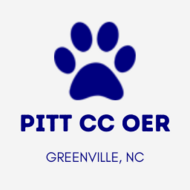
(View Complete Item Description)
This starter kit has been created to provide instructors with an introduction to the use and creation of open educational resources (OER). The text is broken into five sections: Getting Started, Copyright, Finding OER, Teaching with OER, and Creating OER. Although some chapters contain more advanced content, the starter kit is primarily intended for users who are entirely new to Open Education.
While some of the content included in the handbook is Iowa State University-specific, these examples are few and I have tried to make the text as generalizable as possible. I welcome any comments for potential edits and additions to the text and will add an errata/tracking changes page to the front matter in the future. I especially welcome comments on my Diversity and Inclusion chapter, since I am not the most well-versed on that topic.
If you would like to adapt the text for use at your institution, please let me know so I can add links to your adaptations in the future. If you are interested in working with me on a second edition in the future, feel free to reach out! I'd love to make a more advanced version with additional sections for OER program managers and librarians.
The OER Starter Kit was originally adapted from the ABOER Starter Kit, but blossomed into a much larger project over the past few months. It includes content from Billy Meinke's excellent UH OER Training manual, SUNY's wonderful OER Community Courses, and others, all of which can be found on the kit's Attribution page and on the footnotes of their corresponding chapters.
Material Type:
Full Course
Author:
Abbey Elder



